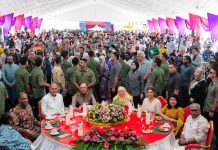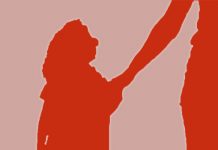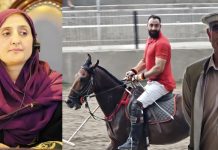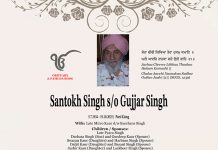Book: VAJPAYEE: The Ascent of the Hindu Right, 1924–1977
Author: Abhishek Choudhary
Publisher: Picador India (10 May 2023)
Hardcover: 432 pages

By Harjeshwar Pal Singh | Book Review |
If there is one Indian Politician whose legend has grown over the years, it is Atal Bihari Vajpayee, the former Prime minister.
Vajpayee cut his teeth in the RSS before his poetry, journalism and oratory propelled him to the leadership of Jan Sangh and BJP. He ended up becoming the first right wing Prime Minister of India in the late 90s.
Vajpayee divided opinions during his lifetime. His supporters saw him as pragmatic, genial and liberal, an epicurean in a party of ascetic spartans, a “right man in the wrong party” while his critics saw him as a double faced “Mukhota” who provided respectability to an otherwise diabolical outfit.
After the inauguration of the Modi era in 2014, Vajpayee’s cult has only grown with even left-liberals joining his bandwagon, bemoaning the passing away of a fellow liberal constitutionalist in the Nehruvian mould. A couple of sympathetic biographies — Jugalbandi by academic Vinay Sitapati and Atal Bihari Vajpayee by the journalist Sagarika Ghose have further added to the Vajpayee cult.
Vajpayee: The ascent of Hindu Right, 1924-1977 by Abhishek Chaudhary, the first part of a two volume biography on Vajpayee demolishes many of the myths which have provided the gloss to Vajpayee over the years.
Chaudhry’s meticulous research over 8 years using a vast array of interviews, documents, Vajpayee’s speeches and writings in early RSS publications like Rashtradharma, Panchjanya and Organiser and newspaper reports has illuminated the obscure early career of one of the greatest hindutva icons.
Vajpayee, the son of a lower middle class Brahmin spent his early years in Bateshwar and Gwalior during the 1920s and 1930s in a conservative milieu where a nascent RSS was spreading its roots. Contrary to the early myths around Vajpayee which he himself fanned during his early political career, Vajpayee was mediocre in studies, physically frail and only played a peripheral, non heroic role in the Quit India movement. However his felicity as a poet and oratory brought him into early limelight in the RSS fraternity.
His early exposure to RSS shaped his worldview fostering hindu victimhood and anti-Muslim sentiments. As a journalist, he played a prominent role in fanning a virulent anti Gandhi campaign in the newly launched RSS publications “Rashtradharma” and “Panchjanya” immediately before the Mahatma’s death.
Vajpayee’s early ascent to Jan Sangh leadership owed as much to his hard work and oratorial skills as much to the paucity of leadership in Jan Sangh due to the early demise of Shyama Prasad Mukherjee and the patronage of Deen Dyal Upadhya. At the same time Vajpayee’s pragmatism and compromises helped him to edge out more ideological and brash rivals like Balraj Madhok after the tragic death of Deen Dyal Upadhya in 1968 and occupy the top position in Jan Sangh.
Vajpayee’s world view widened and he became more cosmopolitan and liberal after becoming an MP and traveled widely. He also found a niche for himself as a foreign policy expert which made him stood out in a party of “petty traders”. However he was never averse to floating conspiracy theories and defending the lumpen elements of his party during the various communal riots which periodically erupted in India.
Contrary to the urban legends which have taken root in the last few years, Vajpayee remained a bitter critic of Nehru on such issues as Kashmir, China, Hindu Code Bill and Cow Protection. There is little evidence for Nehru’s prophesy of Vajpayee becoming a future PM or even the more widely quoted “Durga” praise for Indira Gandhi in the wake of 1971 war. Vajpayee even mocked Nehru for his “sirsasana” responsible for his inverted view of Sangh. Ironically, it was Vajpayee, never an enthusiast for Yoga or any other physical exercise who seriously injured himself during emergency while trying to learn “Sirsasana” in jail!
The book also throws invaluable light on the early affinity and porous boundaries between RSS and Congress conservatives led by Patel and it was only after Patel’s demise and the ascendency of progressives in Congress which finally led RSS to hitch its wagon with the Jan Sangh.
The urban legends and speculations over Vajpayee’s private life and his domestic arrangements have also been laid to rest in the book. Rumours about Vajpayee and Mrs Kaul being lovers in college were floated by them to socially sanctify their later conjugal bonds.
Overall this meticulously researched biography is a must read by any serious student of Indian Politics and history. One can barely wait for the second part scheduled to be released in December which saw Vajpayee and Hindutva scale the commanding heights of Indian Politics and Society.

Harjeshwar Pal Singh is an assistant professor at Sri Guru Gobind Singh College, Chandigarh, where he teaches history. He is an avid political commentator.
RELATED STORY
CAT: Crime thriller set to be a milestone for Punjabi cinema (Asia Samachar, 26 April 2023)
ASIA SAMACHAR is an online newspaper for Sikhs / Punjabis in Southeast Asia and beyond. When you leave a comment at the bottom of this article, it takes time to appear as it is moderated by human being. Unless it is offensive or libelous, it should appear. You can also comment at Facebook, Twitter, and Instagram. You can reach us via WhatsApp +6017-335-1399 or email: asia.samachar@gmail.com. For obituary announcements, click here.
































